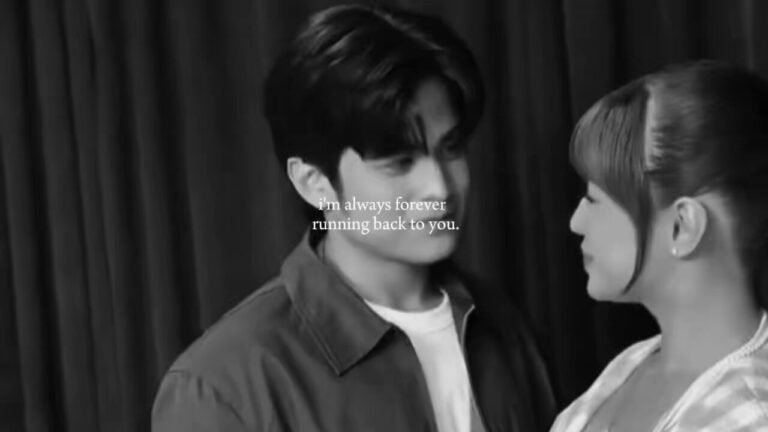Introduction
Always Running Back To You is a phrase that carries instant emotional weight. Whether you’ve seen it as a song title, a line in a poem, or a caption on social media, it taps into themes of attachment, longing, and devotion. This article explains what the phrase means, where it’s commonly used, why it connects with people, and how to use it effectively in creative or branding work.
What the phrase means
At its core, Always Running Back To You suggests a repeated return physically, emotionally, or mentally to someone or something. It implies:
- Persistence: The subject keeps coming back despite obstacles.
- Attachment: A deep emotional tie motivates the return.
- Repetition: The word “always” emphasizes pattern, not a one-time event.
- Vulnerability: Running back often implies surrendering or admitting dependence.
Depending on context, the phrase can be romantic, nostalgic, regretful, or even unhealthy (if it describes a cycle of toxic return).
Possible origins and cultural appearances
While not tied to a single origin, the phrasing fits common patterns in lyrics, romance novels, and cinematic dialogue. Variants like “I keep coming back to you” or “I always return to you” appear throughout classic and modern storytelling because they succinctly express cyclical desire.
Common places you’ll find Always Running Back To You:
- Song titles and lyrics — the cadence and imagery work well in choruses.
- Romantic fiction — used when characters repeatedly reconcile.
- Social media captions — short, emotional phrases perform well as captions.
- Poetry — the phrase carries musicality and emotional clarity for verse.
Emotional and psychological reasons it resonates
- Universality: Almost everyone has experienced longing or the pull toward someone familiar.
- Simplicity: The phrase is direct and easy to relate to.
- Storytelling power: It implies a backstory conflict, separation, reunion which engages listeners or readers.
- Ambiguity: The phrase is emotionally rich but not overly specific audiences can project their own situations onto it.
Creative uses
If you’re a songwriter, writer, or content creator, here are ways to use the phrase effectively:
- Songwriting: Place it in a chorus as an emotional anchor. Vary the verses to show reasons for leaving and returning.
- Short stories: Use the phrase as a motif to mark moments where a character makes the same choice repeatedly.
- Social posts: Pair it with a photo that visually suggests return a road, a doorway, a sunset for stronger emotional effect.
- Branding (carefully): For lifestyle or relationship-focused brands, the phrase can evoke loyalty; avoid usage that could imply dependence in a negative sense.
Writing tips to avoid cliche
Because the idea is common, use these techniques to keep Always Running Back To You fresh:
- Add specifics: Explain why the return happens habit, forgiveness, fear, love.
- Show consequences: Is the return joyful or painful? What does it cost the character?
- Flip expectations: Maybe “running back” is actually an act of courage or self-discovery, not weakness.
- Use sensory detail: Ground the emotional pull in a smell, a sound, or a small physical gesture.
SEO & content advice (if you’re optimizing for this keyword)
- Use the exact phrase in the title and at least 2–3 times in the body, naturally.
- Write for intent: People searching this keyword might be looking for a song, lyrics, meaning, or creative inspiration match your content.
- Suggested length: 800–1,200 words for an informative, ranking-friendly piece.
- Related keywords to include: “meaning of Always Running Back To You,” “song lyrics always running back,” “returning to someone meaning.”
- Meta elements: Keep the meta description under 160 characters and include the keyword.
Example paragraph (creative use)
She stood at the station every evening, heart a metronome of hope. No matter how long she walked away, the tracks and the ticket stubs were testimony to one truth: she was always running back to you. It wasn’t a sign of weakness, she told herself; it was proof that some people become the center of your gravity, pulling you home no matter how far you drift.
When the phrase can be unhealthy
Be mindful: the romantic idea of constantly returning can romanticize cyclical, harmful relationships. If a pattern involves manipulation, emotional abuse, or repeated regret, it’s important to recognize the difference between devotion and a harmful loop. When using the phrase in content, consider adding nuance or resources if the subject touches on mental health or abusive dynamics.
Short FAQ
Q: Is Always Running Back To You a song?
A: It’s a phrase used in many songs and titles; whether it refers to a specific track depends on the artist.
Q: Can this be a brand tagline?
A: Yes, for relationship-centric brands, but use caution to avoid implying unhealthy dependence.
Q: How do I avoid sounding cliché?
A: Add specific motives, sensory detail, and consequences show, don’t just tell.
Conclusion
Always Running Back To You is a compact, emotionally potent phrase that works across music, literature, and online content. It captures the push-and-pull of human attachment in a few memorable words. Used thoughtfully with specificity, nuance, and awareness of emotional context it can be a powerful creative tool.
